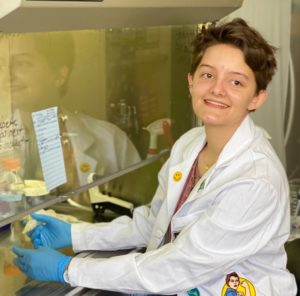From conducting cutting-edge research, to rooting out bias and underrepresentation in academia, the 13 winners of the 2021 College of Veterinary Medicine and Biomedical Sciences Diversity Scholarship are making waves this summer.
“We wanted this award to help support underrepresented, minority and first-generation students,” said Dr. Rushika Perera, an associate professor in the Department of Microbiology, Immunology and Pathology and chair of the CVMBS Diversity and Inclusion Committee. “This is the first year of this scholarship and it turned out great so we’re hoping to make it an annual event that can be developed into something even better in the future.”
Faculty mentors nominated the students in honor and celebration of their talents and contributions, and the recipients will use the scholarships to further their work on specific research, outreach or professional development projects.
These student researchers, mentors, innovators, problem solvers and creative thinkers represent the future of science and the importance of championing the next generation of leaders. Here’s how they are putting their awards into action:
“I am researching an FDA clinical trial approved compound for treatment of the inflammation caused by SARS-CoV-2. I get to do what I love every day working in the lab and I’m excited to potentially help discover a more effective treatment for the inflammation of SARS-CoV-2, which could save lives. I hope to eventually work in vaccine and drug development to discover new and more effective treatments and preventions for infectious diseases.” – Dev Aldaz, Undergraduate Student, Microbiology, Immunology and Pathology

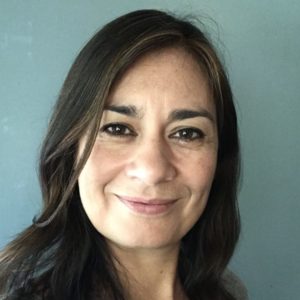
“In addition to my research on understanding essential aspects of SARS-CoV-2 interactions with the RNA biology of the host cell, I am assisting with the preparation of a new course focused on recognizing and avoiding cultural biases in scientific literature and serving as a peer mentor for underrepresented minority students. I hope to continue to serve as a role model to encourage young scientists.” – Noelia Altina, Ph.D. Student, Cell and Molecular Biology
“My research focuses on better understanding how food intake is regulated by the brain. While animals do not suffer eating disorders like their human counterparts, nearly all pet owners will have the experience of their pet losing their appetite. The more we can learn about the underlying neurobiology of eating, the better our chances of improving outcomes for patients. My goal is to help animals and humans live longer, healthier lives. By combining my research and clinical training skillsets, I hope to improve current therapies or develop new ones for conditions that my veterinary patients suffer from. As many veterinary diseases are also seen in humans, discoveries that work for animals might just improve human health as well.” – Caitlin Daimon, Ph.D. Student, Biomedical Sciences; D.V.M. Student
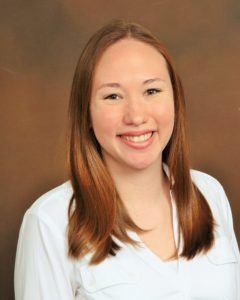
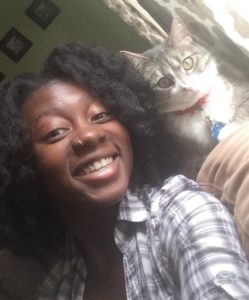
“In addition to my research, I mentor undergraduate students on their research and presentations as a graduate student coordinator for the MURALS program. It’s exciting to show other students of color that they are scholars, belong in academic settings, and that their ideas have merit. I hope to become a science education researcher or professor.” – Jasmine Donkoh, Ph.D. student, Microbiology, Immunology and Pathology
“In addition to my research, I am working to provide guidance and support through my own experience as one of only a few Black/African American students in the microbiology, immunology, and pathology program. My main goal is to shed light on the positives and negatives of working in an environment where many of my personal experiences are not shared widely throughout the department. You don’t notice how good it feels to see people of a similar background and color until it actually happens. Support isn’t a one-way street; it takes many different backgrounds to truly develop an inclusive environment.” – Tyler Thomas-Fenderson, Undergraduate Student, Microbiology, Immunology and Pathology
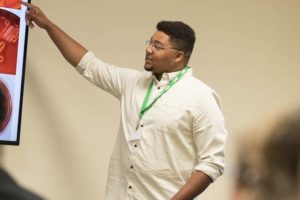
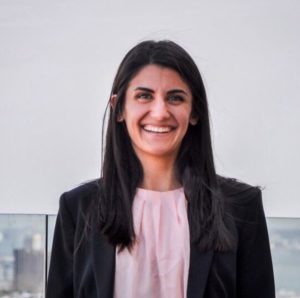
“I am researching the genomic and spatial epidemiology of West Nile virus (WNV) in northern Colorado which allows me to work with city and county officials and will help guide their practices to mitigate WNV risk in the area. I hope to continue to work in infectious disease research that focuses on the molecular ecology and epidemiology of vector-borne or wildlife infectious diseases.” – Jordan Hoffman, Ph.D. Student, Microbiology, Immunology and Pathology
“I am proud to be working on a science communication project to aid an AmeriCorps K-12 after-school program. We are creating eight health/science communication modules as a set of curricula that we are looking forward to piloting this fall. As a nontraditional student, this experience has been fulfilling and educational and has already begun to pave the way for my academic future.” – Heather Huffman, Undergraduate Student, Microbiology, Immunology and Pathology


“My research focuses on investigating stem cell properties of cartilage cells that could be used to regenerate damaged tissues. This work is exciting as it could be beneficial for both animals and humans as they develop similar orthopedic diseases. After completion of the DVM-PhD program, I hope to work at a veterinary or medical college as a laboratory animal veterinarian.” – Bethany Liebig, Ph.D. Student, Clinical Sciences; D.V.M. Student
“I am working on an accessibility audit of virtual reality educational programs for colorblind students. The hope is to identify ways in which virtual reality can improve accessibility and engagement in the classroom. I hope to earn a Ph.D. in biomedical sciences, pursue a teaching career in graduate programs and medical schools, and create inclusive pedagogy that mindfully dismantles systemic forms of oppression within the education system.” – Brandon Lowry, Undergraduate Student, Biomedical Sciences
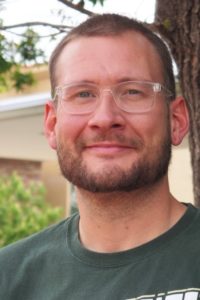
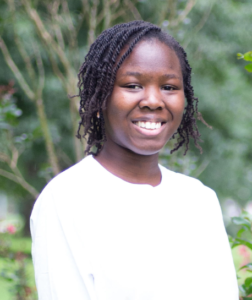
“I am assisting with a project focused on identifying the genes underlying resistance to partitivirus infections in Drosophila melanogaster. It has been exciting to gain knowledge on the importance of D melanogaster as a research model that contributes to answering questions about using viruses as a method of biocontrol. I hope to go on to study and develop novel methods to control the spread of vector-borne diseases.” – Kimberly Awuor Onyango, Undergraduate Student, Microbiology, Immunology and Pathology
“I am helping to establish a peer mentoring model for an introduction to research methods course aimed at providing an inclusive learning environment and assisting with the design and implementation of a survey to assess the impact of peer mentoring on scientific confidence and belonging in the lab for first-year students. I am also collecting and comparing data on the microbiomes of juvenile and adult bearded dragons. There is a gap in research on this topic, and filling gaps in research is the reason I love doing science. I hope to continue to fill gaps in our understanding wherever I find them.” – Kyra Pyron, Undergraduate Student, Microbiology, Immunology and Pathology
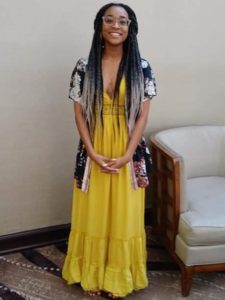
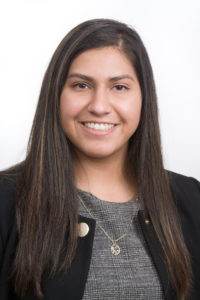
“My research focuses on using systems biology-based platforms to chemically identify the metabolites that attribute to the unique biosignature of infection for Zika virus versus dengue virus in Ae. Aegypti, the mosquito that transmits these viruses. These mosquito-borne diseases affect Latin American and other low-income countries and I am hoping that by becoming an independent and well-rounded researcher investigating host-virus interactions, I can help alleviate these types of diseases.” – Gaby Ramirez, Ph.D. Student, Cell and Molecular Biology
“I am studying neuroinflammation in the brain within specialized brain cells called astrocytes and microglia in response to environmental toxicants such as manganese and lipopolysaccharide. This research will aid our understanding of how neurons are being killed in Parkinson’s disease and how this disease might develop, both of which are poorly understood today. I hope to earn a Ph.D. and to continue to research neurological disease.” – Shelby Smith, Undergraduate Student, Neuroscience
